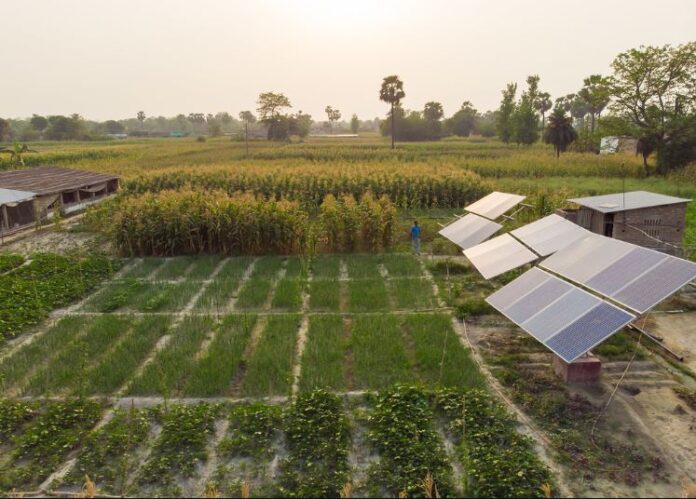The government of Ethiopia has launched an initiative that aims at the large-scale use of solar energy in irrigation.
The Dubbed “Dream” program (Distributed Renewable Energy-Agriculture Modalities), initiative is set to accelerate the development of its agriculture in the country. The program which was launched in Addis Ababa, will involve construction of 200 solar mini-grids to provide clean electricity to power irrigation systems.
Agriculture in Ethiopia
World Bank, the European Investment Bank (EIB), and the African Development Bank (AfDB) through its Sustainable Energy Fund for Africa (SEFA) are supporting the program while the country’s Ministry of Irrigation and Lowlands, the Ministry of Agriculture and the Agricultural Transformation Institute (ATI) implement it. About 290,000 people will be benefit from DREAM. At least 60,000 jobs will also be created during construction period.
“The Dream project has the notable potential to contribute to the Ministry of Irrigation and Lowlands’ vision and mandate to irrigate 2 million hectares by 2030. As part of its National Irrigation Strategy (NIS), the ministry plans to leverage the use of renewable energy to achieve national food security and sovereignty through the expansion of commercially viable, environmentally friendly, climate-resilient and technologically advanced irrigation systems,” says Hizkyas Dufera, senior advisor to the Ethiopian Ministry of Irrigation and Lowlands.
Agriculture in Ethiopia accounts for 32% of the gross domestic product (GDP). However 5% of the land is irrigated and yields on small farms are below regional averages, according to official figures. The development of irrigation is the preferred solution to the water stress experienced several countries in Africa.








